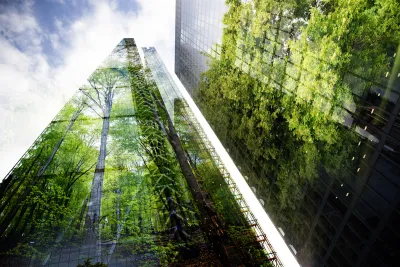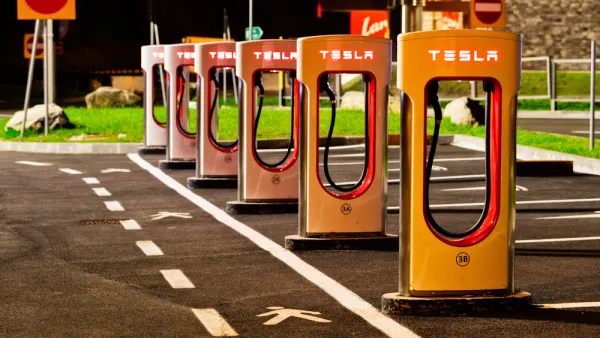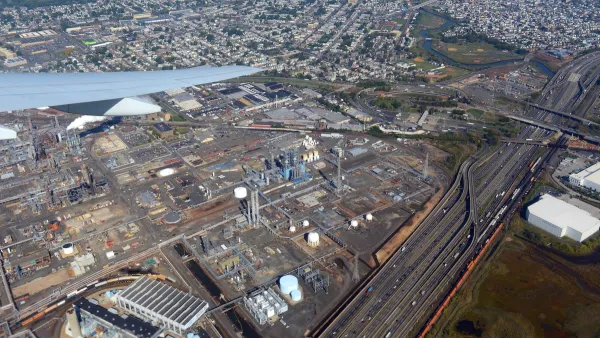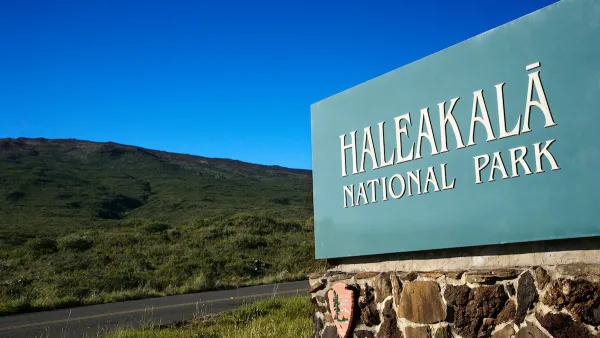The concept of biourbanism views cities as natural systems, but brings a data-driven approach to quantifying and mitigating the impacts of climate change.

To confront climate change, Australian designer Adrian McGregor calls for thinking about cities as part of, not in opposition to, nature. As Keira Wright explains in an interview with McGregor for Bloomberg, “With cities responsible for over 75% of greenhouse gas emissions, designing smart and sustainable cities is the single most pressing challenge in confronting climate change.”
McGregor sees cities as “spectacular living, dynamic systems that evolve with us” that should be classified as “novel nature” or a “human-modified biome” to understand how to increase cities’ resilience in the face of climate change. McGregor’s concept of ‘biourbanism’ “focuses on the urban organism, considering it as a hypercomplex system, according to its internal and external dynamics and their mutual interactions.” The concept includes an urban structure focused on “10 interconnected systems: citizens, economy, energy, infrastructure, mobility, technology, water, waste, landscape and food.”
Despite the focus on natural systems, McGregor also believes technology can play an important role in mitigating the impacts of climate change and helping reduce our carbon footprint. One example is ‘digital twins,’ “models that simulate a real city linked to real data that can enable governments to “undertake climate impact testing and also plan for resilience by prioritizing investment and infrastructure spending in the right places.” McGregor’s data- and tech-centric approach focuses on transparency and access to data as first steps in understanding and reducing energy use and decarbonization.
FULL STORY: Why Thinking of Cities as Nature Is Key to Fighting Climate Change

Analysis: Cybertruck Fatality Rate Far Exceeds That of Ford Pinto
The Tesla Cybertruck was recalled seven times last year.

National Parks Layoffs Will Cause Communities to Lose Billions
Thousands of essential park workers were laid off this week, just before the busy spring break season.

Retro-silient?: America’s First “Eco-burb,” The Woodlands Turns 50
A master-planned community north of Houston offers lessons on green infrastructure and resilient design, but falls short of its founder’s lofty affordability and walkability goals.

Test News Post 1
This is a summary

Analysis: Cybertruck Fatality Rate Far Exceeds That of Ford Pinto
The Tesla Cybertruck was recalled seven times last year.

Test News Headline 46
Test for the image on the front page.
Urban Design for Planners 1: Software Tools
This six-course series explores essential urban design concepts using open source software and equips planners with the tools they need to participate fully in the urban design process.
Planning for Universal Design
Learn the tools for implementing Universal Design in planning regulations.
EMC Planning Group, Inc.
Planetizen
Planetizen
Mpact (formerly Rail~Volution)
Great Falls Development Authority, Inc.
HUDs Office of Policy Development and Research
NYU Wagner Graduate School of Public Service




























